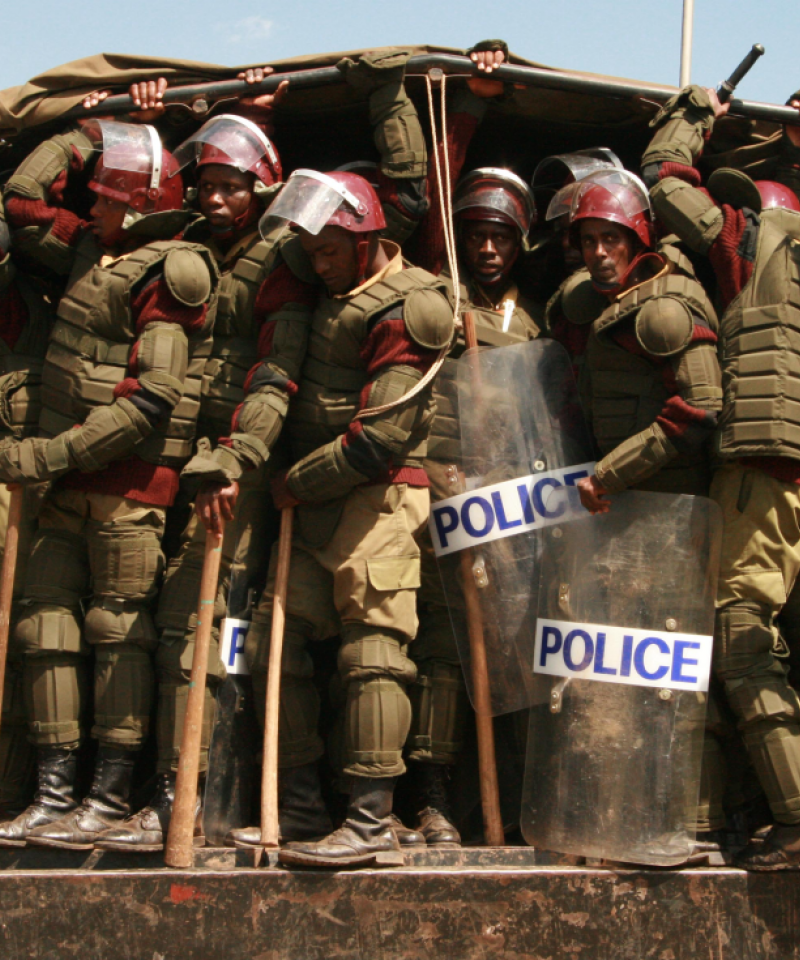Kenya: Community Policing

Kenya’s police service is currently going through a reform based on recommendations made by the National Task Force on Police Reforms. Their report, known as the Ransley report, made recommendations to the Kenyan police that are based on democratic policing principles and suggests community policing should be a central pillar of policing within Kenya.
A lack of police accountability and civilian oversight of the police were highlighted as key issues within the report; it was recognized that the lack of procedural justice leads to a lack of trust and collaboration between communities and the police. Before this, organisations like Chemchemi Ya Ukweli (CYU) and individuals had identified community-based policing as an answer to the then growing levels of crime within Kenyan communities and culture of violence that came with this. Community-based policing is an approach to policing that brings together the police, civil society and local communities to develop local solutions to local safety and security concerns. For CYU this approach / programme aimed to improve relations between the police and communities and to enable them to work together to find solutions to community safety concerns.
Recently, the challenge of terrorist activities in the country has changed the dynamics and therefore the efforts and the investments into community-based policing in a big way, which are at an all time high risk of being eroded. Our experience of the work done to counter violent extremism in Mombasa (and the coast in general), where police have used lethal force in seeking to contain terrorism, is that these tactics lead to the kind of situation that further breeds extremism. This has made violent extremism go underground and has not in any way eliminated the threats posed by terrorism and the terror organizations.
In response to the threats of terrorism the Kenyan government uses unnecessary force, possibly aimed at scaring communities and especially young people from engaging with terror groups. This has sometimes led to extrajudicial killings that have angered communities, driving them and especially the families of the victims closer to terror groups either as sympathizers or possible recruits, simply to seek revenge. This situation is even more threatening for returnees who would wish to disengage from terrorism and terror activities as their safety isn’t guaranteed.
The serious disconnect between government agencies dealing with safety and security hasn’t helped matters as their approaches are worlds apart. The Anti-Terrorism Police Unit works in isolation and the confusion and competition between the government’s Nyumba Kumi (Ten Houses) Initiative and Community Policing Unit which are coordinated separately confuses civil society organizations and communities who ideally are supposed to be beneficiaries. However, for civil society organizations, the position and therefore the approach is different. CYU holds that “all life is sacred and of absolute value”, including the lives of suspected terrorists. Going down to the basic reasons of why terrorism is appealing to the young people is thus very key to civil society organizations. Amnesty for returnees and proper process of reintegration builds trust, fosters reconciliation and more importantly restores relationships. CYU therefore holds and believes that the absence of a multi-sectoral approach to these issues drives our young people away from us and closer to organized terror and criminal gangs, which leads to the militarization of our communities more and more each day. If nothing changes then the response will be even more militarized security agencies as the belief is that a “better equipped” and more militarized police force is better placed to deal with militarized threats.
Add new comment